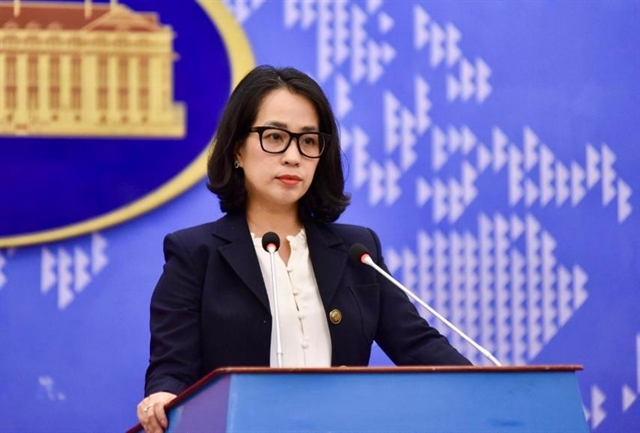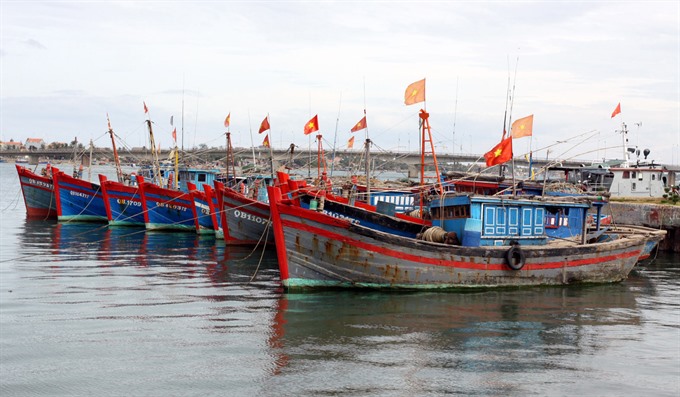 Politics & Law
Politics & Law

The South China Sea (the
 |
| Vessels in a fishing co-operative in Đồng Hới City of the central coastal province of Quảng Bình. — VNA/VNS Photo Thế Duyệt |
HÀ NỘI — The South China Sea (the
In remarks opening the dialogue, Vice President of the Diplomatic Academy of Việt Nam Lê Hải Bình said for regional countries, fishing in the South China Sea brings about more than simple economic benefits. It strongly affects the socio-economic stability and survival of hundreds of millions of people living along coastal areas, he said, adding that fisheries are closely linked to legitimate rights to maritime resources under the international law on the sea.
However, in the face of overfishing, illegal, unreported and unregulated (IUU) fishing, and the use of destructive catching methods, countries bordering the South China Sea have the responsibility to develop fisheries in a sustainable manner and protect the marine environment, Bình stressed.
He said the dialogue provided experts with a valuable opportunity to share their views and discuss ways to improve fishery cooperation in the region.
Experts around the world have repeatedly voiced their concerns, asking the countries surrounding the
Wang Guan, a research fellow from China’s National Institute for South China Sea Studies Haikou, said at the meeting that China categorised the South China Sea issues into three main perspectives: politics, petroleum, and protein, with the last one referring to the fact that fish is currently the second source of protein for Chinese population (just after pork). Fisheries and related activities are also the main livelihood for at least 20 million Chinese people, making up nearly 90 per cent of their disposable income, Wang added.
She also added that
Indonesian Dr Shafiah F. Muhibat (Centre for Strategic and International Studies) noted that her country’s fisheries industry is mostly comprised mostly of small-scale fishing, and has recently adopted hardline measures against illegal fishing, including provisions to blow up trespassing vessels and arrest fishermen from other countries illicitly operating in its sea. Muhibat said that drastic measures to combat drastic methods of fishing must come hand in hand with providing safer and environmentally friendly alternatives, such as development of green aquaculture, for fishermen. She also stressed the role of education and promoting awareness at the local level of national policies.
She also shared
Captain Marti A. Sebastian RMN, head of the
The Ocean Dialogue is an annual seminar in talkshow format, for experts, think tanks and the media to discuss pressing issues related to sea and island. It was held for the first time in late 2017 with the theme of governance strategy in the South China Sea. — VNS